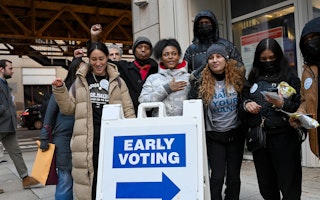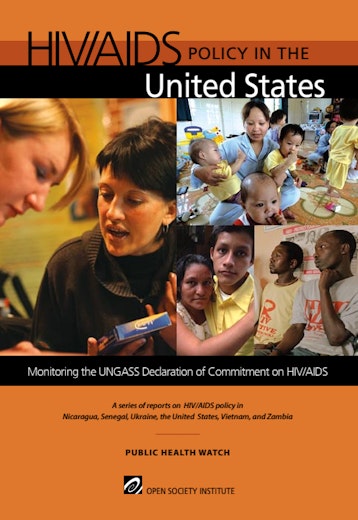In June 2001, at the United Nations General Assembly Special Session on HIV/AIDS (UNGASS), 189 national governments, including the United States, adopted the Declaration of Commitment on HIV/AIDS. The document commits governments to improve responses to their domestic AIDS epidemics and sets targets for AIDS-related financing, policy, and programming.
The Declaration also stipulates that governments conduct periodic reviews to assess progress on realizing their UNGASS commitments. In recognition of the crucial role civil society plays in the response to HIV/AIDS, the Declaration calls on governments to include civil society, particularly people living with HIV/AIDS, in the review process.
The Open Society Public Health Watch HIV/AIDS Monitoring Project partners with civil society organizations in Nicaragua, Senegal, Ukraine, the United States, Vietnam, and Zambia to monitor and advocate for improved governmental efforts to comply with the UNGASS Declaration of Commitment on HIV/AIDS. This report provides an overview of Public Health Watch partners' findings in these six countries, as well as a lengthier assessment of U.S. HIV/AIDS policy.
Download
-
HIV/AIDS Policy in the United States: Monitoring the UNGASS Declaration of Commitment on HIV/AIDS (1.62 Mb pdf file)
Download the complete publication.
Read more
Online Hate Speech
New SEC Complaint Says Meta Misled Shareholders over Myanmar Hate

A whistleblower complaint to the SEC argues that the social media giant Meta misrepresented its role in fueling violence against Myanmar’s Rohingya—highlighting the need for more platform accountability for online hate.
Civic Engagement
Bolstering Women and Youth, Linchpins of Democracy

Philanthropy has historically underfunded women and youth. Open Society’s new $50 million investment in their engagement addresses that imbalance—and builds on recent surges in civic engagement crucial to the future of American democracy.
Art and Activism
Reimagining January 6th

The insurrection at the U.S. Capitol left him in a cold sweat. Creating a comic book seemed like one way to reach people not obsessively following the news and spark activism to help defend a multicultural democracy.
